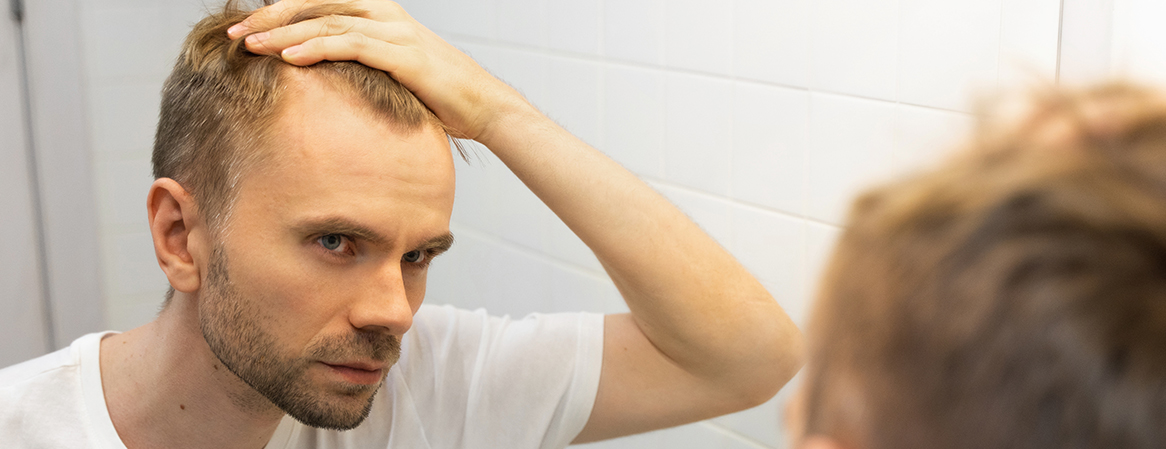Hair loss is a distressing condition for many who experience it. Male pattern hair loss commonly runs in families and many men have concerns about this from a young age. Hair loss in men is very commonly influenced by genetics and hormones. We are fortunate to have multiple treatments available for men to help prevent further loss and potentially regrow and thicken existing hairs for some patients. With continued medical treatment, many men can retain the hairs they have and prevent further thinning of existing hair. It does take time for the medication to take effect and it is recommended to stick with it for at least 1-2 years to assess how much improvement can be obtained.










